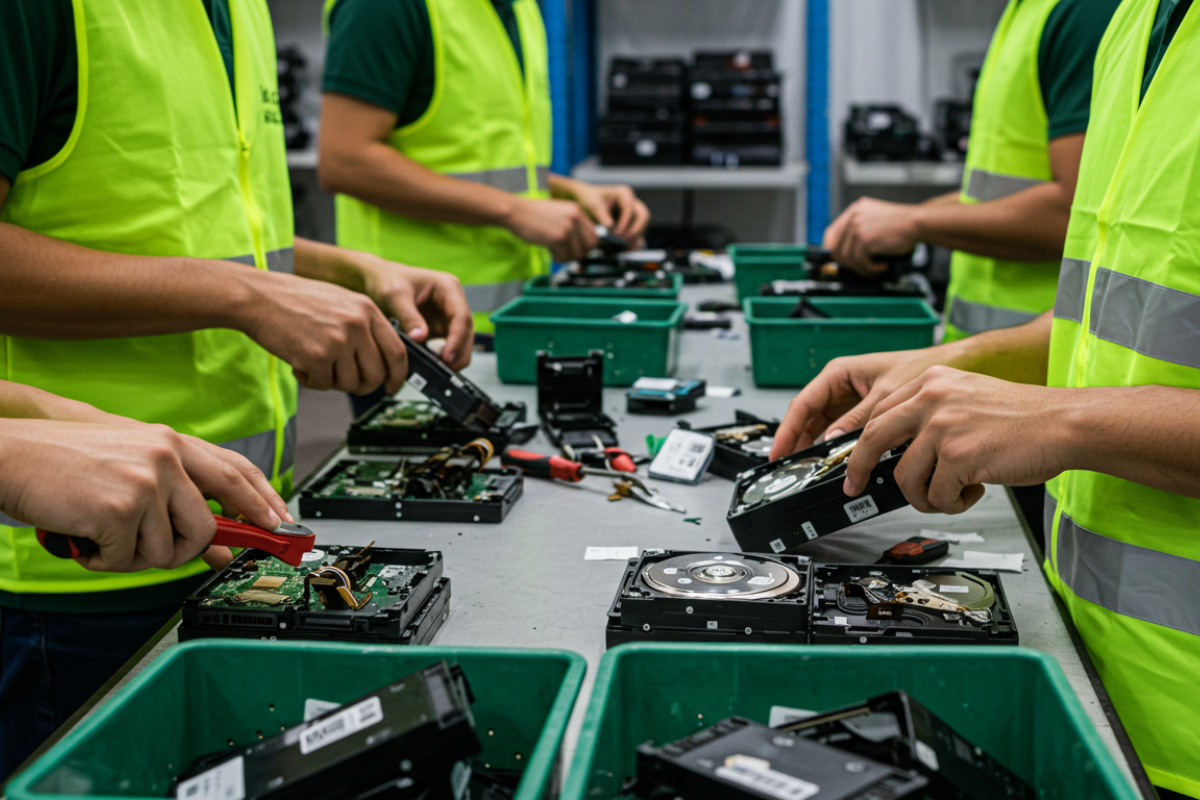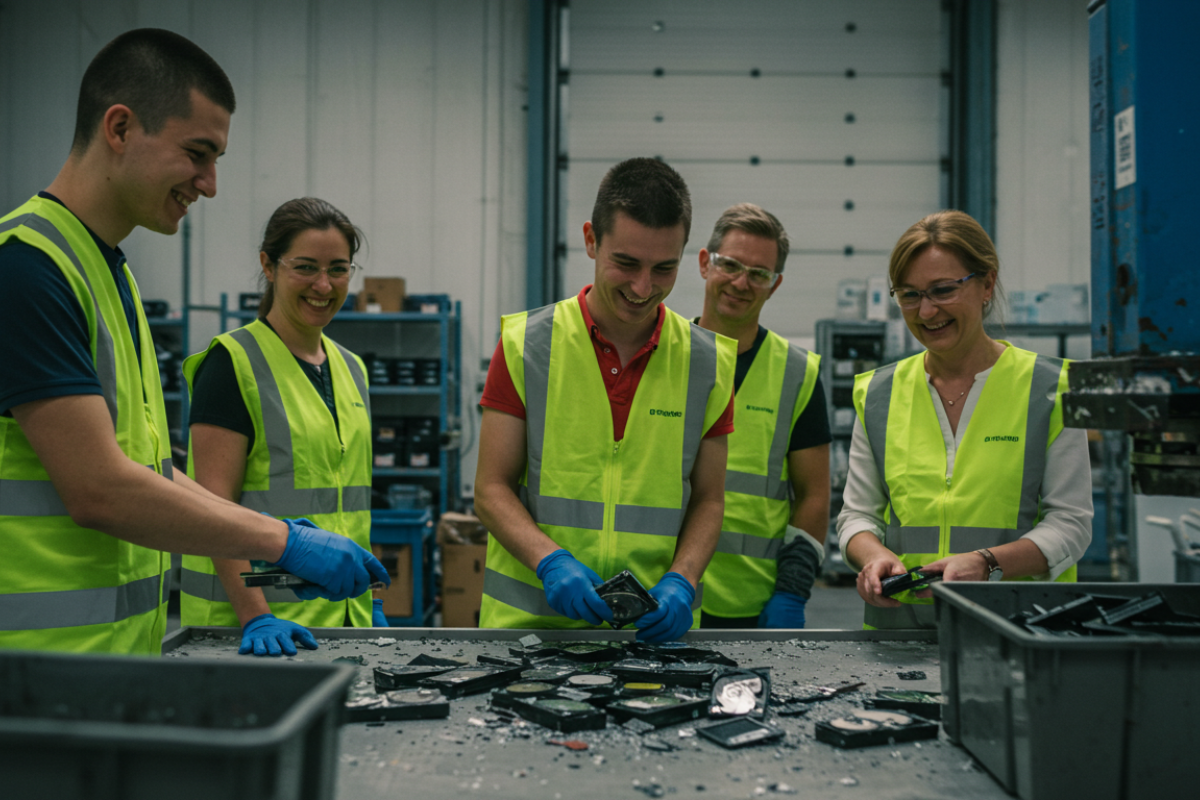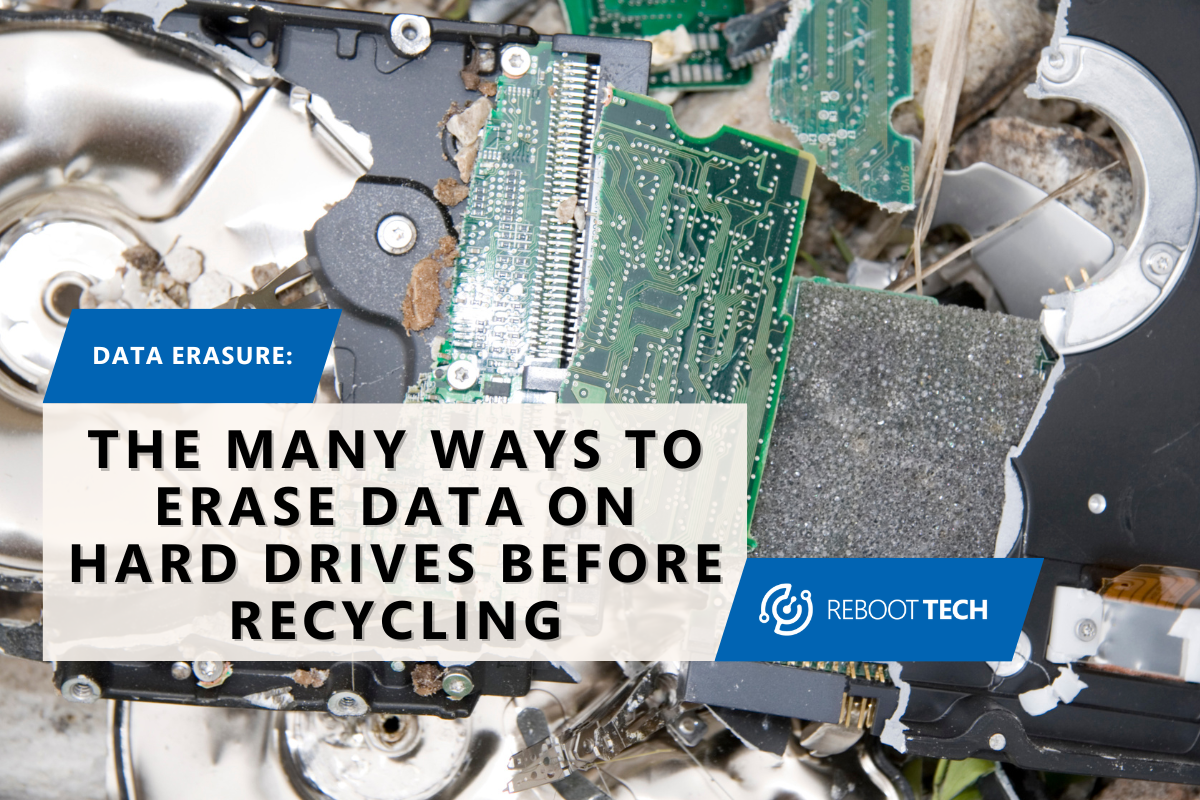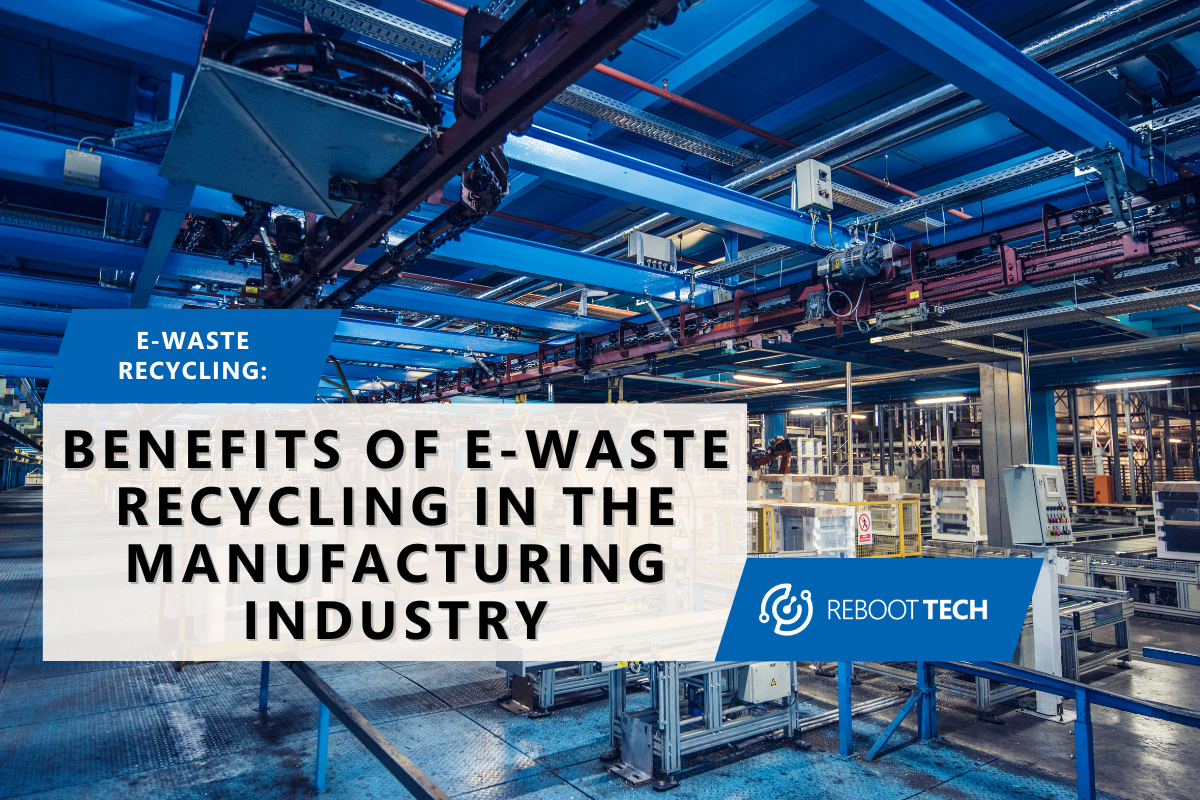
The Process of How Hard Drives Are Recycled
Ever stared at a drawer full of old hard drives and thought, “What do I even do with these?” You’re not alone. From busted desktops to dusty laptops, most of us have hard drives stashed somewhere—collecting dust and taking up space. But did you know that hard drives can actually be recycled in a secure, environmentally responsible way?title
In this guide, we’ll give you more information on recycling hard drives, why it’s important, and how both individuals and businesses can handle them the right way. Whether you’re worried about your personal data or just want to clean out your office, you’ll learn everything you need to make a smart, secure decision.
The Problems with Hard Drive Disposal
Many people mistakenly believe that hard drives aren’t recyclable. Because they’re filled with metal, plastic, magnets, and sensitive data, people assume it’s safer to just hold onto them. That’s why so many hard drives end up in closets or old filing cabinets, forgotten until it’s time to move or do a deep clean.
Another concern is data security. Even after deleting files, many fear that confidential information could still be recovered. So they avoid e-waste recycling companies altogether, unsure if their data will be fully wiped or if their device will end up in the wrong hands.
Then there’s the hassle factor. Some people feel like recycling hard drives takes too much time or effort. Without a clear, simple process, it’s easy to procrastinate or not do it at all. But holding onto outdated drives increases your chances of data breaches if they’re ever accessed or stolen.
On top of that, throwing them in the trash isn’t an option—at least not a responsible one. Hard drives contain hazardous materials and rare metals that are harmful to the environment when not properly recycled, especially in developed countries with strict data protection regulations.
The E-Waste Problem
Electronic waste, or e-waste, is growing faster than any other type of trash. And every computer—whether it’s a desktop or a laptop—contains some form of hard drive. That includes both traditional HDDs (hard disk drives) and newer SSDs (solid-state drives), also known as state drives (SSDs).
While HDDs use spinning disks and moving parts to store data, SSDs use flash memory and no moving parts. Both store sensitive data. Both can be recycled. And both are showing up in landfills far too often.
According to the Global E-Waste Monitor 2024, over 59 million metric tons of e-waste were produced worldwide. A large portion of that includes components like hard drives and other electronic products like cell phones.
Properly recycling these devices helps recover valuable natural resources, prevents toxic materials from polluting soil and water, and limits the environmental damage caused by improper disposal.
How to Recycle Hard Drives
Recycling a hard drive doesn’t have to be complicated. Here’s a simple step-by-step breakdown:
Back up and wipe your data. Before recycling, make sure any important files are saved elsewhere. Use a certified e-waste recycler. Look for certifications like R2 or e-Stewards, which guarantee proper handling and secure disposal. Ask about the recycling process. Reputable recyclers will offer data destruction services, and many will even show you how they destroy each device.
Drop it off or schedule a pick-up. Some companies will let you ship devices in. Others offer local drop-off or bulk pick-up services. Once your hard drive is in their hands, professionals will ensure that your data is protected and the materials are processed through an environmentally friendly recycling process.

How Businesses Can Recycle Bulk Hard Drives
Got hundreds of old hard drives lying around at your company? That might seem overwhelming, especially when you think about the volume of data they contain. But it doesn’t have to be.
Reputable e-waste recycling companies like Reboot Tech specialize in handling bulk hard drive recycling for businesses. Whether you’re decommissioning a data center or just doing an office clean-out, we offer tailored recycling programs that are safe, certified, and efficient.
We understand your concerns. That’s why we follow strict data security protocols, ensuring no data leaves your hands without being securely wiped or destroyed. Our team will help you inventory, pack, transport, and recycle your hard drives without disrupting your operations.
Bulk recycling also helps companies meet Environmental Protection Agency (EPA) standards, reduce liability, and promote sustainable waste management practices across the United States.
The Data Wiping Process for Hard Drives
Worried about your information getting into the wrong hands? Don’t be. There are several effective methods for destroying data on hard drives:
Degaussing: A strong magnetic field erases data by disrupting the magnetic domains. Data wiping/software-based deletion: Uses specialized programs to overwrite data multiple times for complete data erasure. Hard drive shredding: Physically destroys the drive into small, unreadable pieces.

Reputable recyclers usually offer one or more of these options and provide certificates of data destruction for your records. This is especially important for businesses that deal with sensitive client or employee information and must comply with data protection regulations.
No matter the method, the goal is the same: complete removal of recoverable data before the hardware is processed for reuse and recycling. These security measures ensure data recovery is impossible, giving you peace of mind.
The Difference Recycling E-Waste Makes
Recycling hard drives and other electronics has a big impact. Not only does it keep hazardous materials like lead and mercury out of landfills, but it also reduces the need for mining new materials.
Every recycled hard drive contributes to conserving natural resources, lowering greenhouse gas emissions, and reducing electronic waste buildup. Plus, many of the recycled materials—like aluminum, copper, and precious metals—can be reused in new products.
When you recycle through the right channels, you’re not just cleaning out your drawers—you’re participating in a larger movement toward environmental sustainability and preventing data misuse.
Why Recycling Hard Drives Is Worth It
Let’s face it: it’s easy to ignore old hard drives. They’re small, unassuming, and easy to toss in a drawer. But they hold powerful data—and even more powerful materials that need proper disposal.
Recycling them isn’t just the responsible choice. It’s the smart one. With the right partner, like Reboot Tech, the process becomes safe, secure, and surprisingly simple.
Make the move today. Clean out your space, protect your personal information, and help the planet. Your old hard drives are ready for their second life—and now you know exactly how to give it to them.



